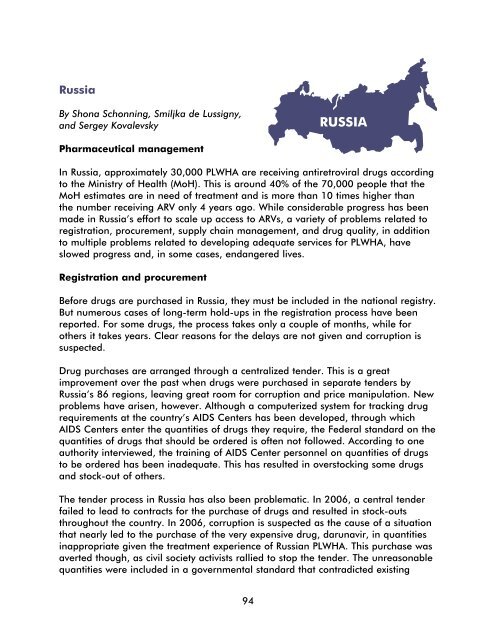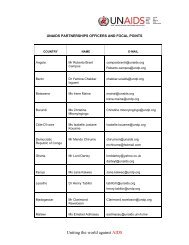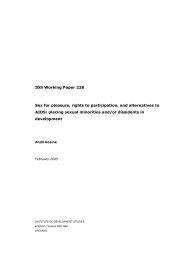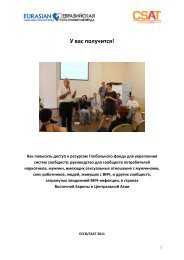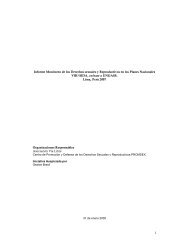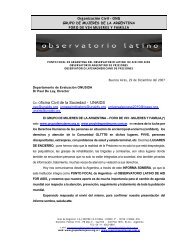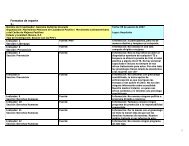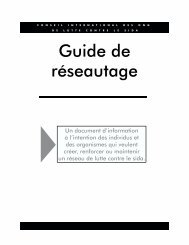Missing the Target #5: Improving AIDS Drug Access ... - CD8 T cells
Missing the Target #5: Improving AIDS Drug Access ... - CD8 T cells
Missing the Target #5: Improving AIDS Drug Access ... - CD8 T cells
You also want an ePaper? Increase the reach of your titles
YUMPU automatically turns print PDFs into web optimized ePapers that Google loves.
RussiaBy Shona Schonning, Smiljka de Lussigny,and Sergey KovalevskyPharmaceutical managementIn Russia, approximately 30,000 PLWHA are receiving antiretroviral drugs accordingto <strong>the</strong> Ministry of Health (MoH). This is around 40% of <strong>the</strong> 70,000 people that <strong>the</strong>MoH estimates are in need of treatment and is more than 10 times higher than<strong>the</strong> number receiving ARV only 4 years ago. While considerable progress has beenmade in Russia’s effort to scale up access to ARVs, a variety of problems related toregistration, procurement, supply chain management, and drug quality, in additionto multiple problems related to developing adequate services for PLWHA, haveslowed progress and, in some cases, endangered lives.Registration and procurementBefore drugs are purchased in Russia, <strong>the</strong>y must be included in <strong>the</strong> national registry.But numerous cases of long-term hold-ups in <strong>the</strong> registration process have beenreported. For some drugs, <strong>the</strong> process takes only a couple of months, while foro<strong>the</strong>rs it takes years. Clear reasons for <strong>the</strong> delays are not given and corruption issuspected.<strong>Drug</strong> purchases are arranged through a centralized tender. This is a greatimprovement over <strong>the</strong> past when drugs were purchased in separate tenders byRussia’s 86 regions, leaving great room for corruption and price manipulation. Newproblems have arisen, however. Although a computerized system for tracking drugrequirements at <strong>the</strong> country’s <strong>AIDS</strong> Centers has been developed, through which<strong>AIDS</strong> Centers enter <strong>the</strong> quantities of drugs <strong>the</strong>y require, <strong>the</strong> Federal standard on <strong>the</strong>quantities of drugs that should be ordered is often not followed. According to oneauthority interviewed, <strong>the</strong> training of <strong>AIDS</strong> Center personnel on quantities of drugsto be ordered has been inadequate. This has resulted in overstocking some drugsand stock-out of o<strong>the</strong>rs.The tender process in Russia has also been problematic. In 2006, a central tenderfailed to lead to contracts for <strong>the</strong> purchase of drugs and resulted in stock-outsthroughout <strong>the</strong> country. In 2006, corruption is suspected as <strong>the</strong> cause of a situationthat nearly led to <strong>the</strong> purchase of <strong>the</strong> very expensive drug, darunavir, in quantitiesinappropriate given <strong>the</strong> treatment experience of Russian PLWHA. This purchase wasaverted though, as civil society activists rallied to stop <strong>the</strong> tender. The unreasonablequantities were included in a governmental standard that contradicted existing94


